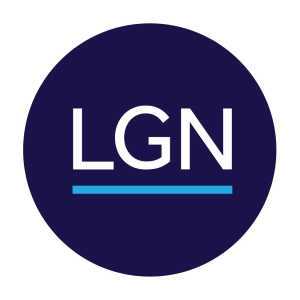Employment Law Updates from the Minnesota Legislative Session
Below are some of the major developments affecting Minnesota employers.
Earned Sick and Safe Time Effective January 1, 2024
Beginning January 1, 2024, all employers must provide paid sick and safe leave to employees who work at least 80 hours in Minnesota in a single year, including part-time and temporary employees. Passed as part of an omnibus jobs and economic development spending bill, the statewide earned sick and safe leave law is similar to existing ordinances in Minneapolis, St. Paul, and other Minnesota cities. Employees can accrue at least one hour of earned sick and safe time for every 30 hours worked, for a maximum of 48 hours accrued per year (unless the employer agrees to a higher amount). Accrual commences on the first day of employment, and employees may use the leave as it accrues. Employees will also be entitled to carry over unused sick and safe time into the following year for up to a maximum of 80 hours total accrued (unless the employer agrees to a higher amount). Alternatively, an employer can frontload leave at the beginning of the year or pay out accrued leave at the end of the year, with limited conditions. Employers are not required to pay out an employee’s unused sick and safe leave upon separation from employment. However, an employee is entitled to reinstatement of previously accrued unused sick and safe leave upon rehire within 180 days of separation by the same employer.
Employees may use earned sick and safe time broadly for the employee’s own mental or physical health condition or medical care; care of a family member’s health condition or medical care; absence due to domestic abuse, sexual assault, or stalking of the employee or family member; closure of the employee’s place of business due to weather or other public emergency, or to care for a family member whose school or place of care has been closed due to weather or other public emergency; the employee’s inability to work due to potential transmission, or awaiting diagnosis or test results, of a communicable disease related to a public emergency; or exposure of the employee or a family member to a communicable disease as determined by health authorities or a health care professional.
With a written policy regarding notice procedures, employers may require up to seven days’ advance notice of an employee’s need to use accrued safe and sick leave if the need for use is foreseeable, or as soon as practicable if the need for use is unforeseeable. When an employee uses accrued sick and safe leave for more than three consecutive days, an employer may require reasonable documentation that the leave is covered sick and safe time.
Employers are required to give notice to all employees of their rights, protections, and responsibilities under the law. The notice must be provided in English and the employee’s primary language, posted physically at the worksite or on an electronic platform in a conspicuous location, and provided in an employee handbook if one exists. The law contains additional requirements for employers with respect to retention of records and confidentiality and nondisclosure of employee information. The law also prohibits retaliation against an employee for requesting or using sick and safe leave and provides a private right of action to employees who experience retaliation.
Ban on Noncompete Agreements Takes Effect July 1, 2023
On May 24, 2023, Minnesota Governor Tim Walz signed into law a bill prohibiting noncompete covenants in employment agreements. Passed by the legislature as part of the omnibus jobs bill, the new law bans employers from entering into an agreement with an employee to restrict the employee, after termination of the employment, from working for another employer for a specified time, working in a specified geographical area, or working for another employer in a capacity similar to their previous role. The law defines “employee” broadly to include independent contractors.
The prohibition does not apply to certain limited noncompete agreements between seller and buyer parties during the sale of a business, or between partners, members, or shareholders in anticipation of the dissolution of a business. The law also expressly distinguishes covenants not to compete from nondisclosure agreements and nonsolicitation agreements. Such agreements, designed to protect trade secrets or confidential information, or to restrict the ability to use client or contact lists or solicit customers, will remain enforceable.
The law takes effect July 1, 2023, and applies only to agreements entered on or after that date. While Minnesota employers should take care to ensure that any employment agreements after July 1 do not contain covenants not to compete, the inclusion of an unenforceable noncompete provision will not render the entire agreement unenforceable. Employers cannot circumvent Minnesota’s ban by including choice of law or forum selection clauses providing that disputes will be adjudicated in or governed by the laws of another state. An employee may be awarded reasonable attorney’s fees in a civil action against an employer for violating the law, in addition to injunctive relief and other remedies.
Expansion of Nursing Mothers, Lactating Employees, and Pregnancy Accommodations Effective July 1, 2023
The legislature enhanced protections for nursing mothers and lactating employees as well. Specifically, the omnibus jobs bill amended prior accommodations rights for nursing mothers to encompass lactating employees generally. An employer must provide reasonable break times to employees who need to express milk, no longer limited to the 12 months following the birth of a child. The breaks may run concurrently with breaks already provided, but an employer can no longer deny reasonable break times to a lactating employee on the basis that it would unduly disrupt the employer’s operations. Further, the room or other location close to the work area that an employer must provide, which already requires access to an electrical outlet and cannot be a bathroom or toilet stall, must also be “clean, private, and secure.” Employers are prohibited from discharging, disciplining, penalizing, interfering with, threatening, restraining, coercing, or otherwise retaliating or discriminating against a nursing mother or lactating employee.
The bill also expanded the reasonable accommodations available to an employee for health conditions related to pregnancy or childbirth. Now, accommodations may include temporary transfer, temporary leave of absence, modification in work schedule or assignments, seating, more frequent or longer break periods, and limits to heavy lifting. An employer may not claim undue hardship in response to an accommodation request for more frequent or longer restroom, food, and water breaks; seating; or limits on lifting over 20 pounds. Again, discharging, disciplining, penalizing, interfering with, threatening, restraining, coercing, or otherwise retaliating or discriminating against an employee requesting pregnancy accommodations is prohibited.
Employers must now provide notice of these rights to employees at the time of hire and when an employee inquires about or requests parental leave, as well as in employee handbooks.The notice must be provided in English and in the employee’s primary language. The Department of Labor and Industry will provide sample text in English and other languages.
Importantly, all employers who employ one or more employees are subject to the accommodations and notice requirements under this section. Previously, only employers with fifteen or more employees were required to provide pregnancy accommodations.
Twelve Weeks of Unpaid Pregnancy and Parenting Leave for All Employees Effective July 1, 2023
Effective July 1, 2023, all employers who employ one or more employees must provide 12 weeks of unpaid pregnancy or parenting leave to all employees in Minnesota. The bill removes prior restrictions based on minimum length of service and hours worked, meaning all employees, including part-time and temporary employees, are eligible for leave immediately upon hire. Only independent contractors remain excluded. No employer can discharge, discipline, penalize, interfere with, threaten, restrain, coerce, or otherwise retaliate or discriminate against an employee for requesting or obtaining leave under the law.
Protections Against Discrimination Based on Race and Gender Identity Strengthened in the Minnesota Human Rights Act
The legislature passed the CROWN Act in February of this year to amend the Minnesota Human Rights Act (MHRA) by defining “race” as “inclusive of traits associated with race, including but not limited to hair texture and hair styles such as braids, locs, and twists.” “Race” was previously undefined in the MHRA.
In May, the legislature further amended the MHRA to add “gender identity” as a protected class. While the MHRA’s prohibition against sexual orientation discrimination has long been interpreted by Minnesota courts to encompass discrimination based on gender identity, the statute will now clearly distinguish “gender identity” as its own protected class, defined as: “A person’s inherent sense of being a man, woman, both, or neither. A person’s gender identity may or may not correspond to their assigned sex at birth or to their primary or secondary sex characteristics. A person’s gender identity is not necessarily visible to others.”
Employers should ensure their nondiscrimination policies and trainings incorporate these protections before the amendments take effect on August 1, 2023.
Cannabis Legalization Takes Effect August 1, 2023
Governor Walz signed a bill legalizing the recreational use of marijuana for adults 21 or over. Under this sweeping new law, (most) employers can no longer screen job applicants for marijuana as a condition of employment or conduct random drug tests.
Employers can, however, ban employees from possessing or using cannabis during work hours and when on-site or using a company vehicle. Drug testing for cannabis is still permitted if the employer has a reasonable suspicion that cannabis use caused a violation of company policy or law.
Employers are permitted to test for drug and alcohol use for the following positions:
- A “safety-sensitive” job;
- Firefighters and licensed peace officers;
- Health care workers, emergency care providers and caregivers of children or vulnerable adults;
- Commercial drivers;
- Professional athletes;
Other jobs subject to drug or alcohol testing under state or federal law.
Ban on Inquiring into an Applicant’s Pay History Takes Effect January 1, 2024
Minnesota has joined the growing list of states and localities enacting pay history bans. Beginning January 1, 2024, employers are not allowed to inquire into, consider, or require disclosure from any source the pay history of a job applicant for the purpose of determining compensation or benefits for that applicant. Included in an omnibus judiciary and public safety appropriations bill, the new law enables an applicant to bring a cause of action for wage discrimination under the Minnesota Human Rights Act if a prospective employer asked, encouraged, or prompted disclosure of their pay history for the purpose of negotiating compensation. The law makes clear, however, that an applicant may voluntarily disclose their pay history to a prospective employer, and the employer may consider or act on the voluntarily disclosed pay history information to support a wage or salary higher than initially offered. The law does not prohibit employers from inquiring about the applicant’s expectations or requests with respect to compensation or benefits.
Sexual Harassment or Abuse Settlement Payments Can No Longer Be Provided as Wages or Severance Pay
Minnesota law now prohibits employers who enter into a financial settlement with an employee involving a sexual harassment or abuse claim from characterizing the payment as wages or severance pay, regardless of whether the settlement includes a nondisclosure agreement. Included within the omnibus tax finance and policy bill, the law became effective when signed by Governor Walz on May 23, 2023. The law is intended to prevent employers from deducting such settlement payments as business expenses, and to exempt the payments from employees’ taxable income to increase the amount the employee takes home. However, the language as passed has caused some confusion among legal and tax experts in terms of employers’ compliance with reporting requirements under the U.S. Internal Revenue Code.
Minnesota Secure Choice Retirement Program Launching January 1, 2025
On May 18, 2023, Governor Walz signed into law the Minnesota Secure Choice Retirement Program Act, which establishes a state-administered retirement program for private sector employees who do not have access to a 401(k) or other employer-sponsored retirement plan. The law requires employers who employ five or more employees and do not sponsor a retirement plan to enroll all adult employees (at least 18 years of age on December 31 of the preceding year) in the state program and withhold payroll deduction contributions from the employee’s paycheck unless the employee opts out of the program.
The law provides that a board of directors will administer the program and establish procedures and eligibility criteria for opening individual retirement accounts for employees. The board will set contribution rates, which will be automatically made after-tax (Roth) unless the employee elects to contribute pre-tax. The board will prepare written information regarding the program, which employers will be required to distribute to each covered employee at least 30 days prior to the date the first contribution will be deducted from the employee’s paycheck. Covered employers who fail to comply with their requirements under the program may be subject to civil penalties.
The program will launch no earlier than January 1, 2025, and will be opened in phases over two years from the initial launch date.
Paid Family and Medical Leave Benefit Program Launching January 1, 2026
The Minnesota legislature passed a comprehensive bill to establish a family and medical benefit insurance program. Administered by the Department of Employment and Economic Development, the program is expected to launch January 1, 2026. The benefits will apply broadly to leave associated with qualifying bonding, family care, medical care related to pregnancy, serious health condition, qualifying exigency, or safety leave events. Under the program, eligible employees in Minnesota will be entitled to up to 12 weeks of paid medical leave (for serious health condition or medical care related to pregnancy) and up to 12 weeks of paid family leave (for bonding, safety leave, family care, or qualifying exigency) per year, for a maximum total of 20 weeks in a single year. Except for a claim for benefits for bonding leave, any claim for benefits under the program must be based on a single qualifying event of at least seven calendar days. An employee taking leave under the program must provide at least 30 days’ notice to their employer for foreseeable leave, or as soon as practicable for unforeseeable leave.
Employers will be required to pay annual premiums into the insurance account from which the DEED commissioner pays benefits to applicants for qualifying family or medical leave. Beginning July 1, 2024, employers will be required to submit quarterly wage detail reports to the commissioner, who will use the wage data to compute the premium and benefit amounts. An employer must pay a minimum of 50% of the premiums, with the remaining portion of the premiums to be deducted from employees’ wages. The deductions for any given employee must be in equal proportion to the premiums paid based on the wages of that employee, and all employees must be subject to the same percentage deduction. The deductions must also not cause an employee’s wage to fall below the rate required to be paid to them by law. The law does not limit parties to a collective bargaining agreement from bargaining and agreeing with respect to benefits and related procedures and employee protections that meet or exceed, and do not otherwise conflict with, the minimum standards and requirements of the program.
Starting July 1, 2025, employers may apply for exemption from one or both leave programs through substitution of a private plan that provides the same rights, protections, and benefits afforded by the program. The amount payable in benefits must be at least equal to the benefit amount payable under the program, and no more than 50% of the cost of the private plan may be deducted from employees’ wages. These requirements may be met through the use of a private insurance product.
The law provides that an employee may voluntarily use vacation, sick leave, PTO, or disability insurance payments in lieu of the benefits provided under the program or private plan, if they are concurrently eligible to do so. An employer may also provide vacation, sick leave, or other PTO as supplemental benefit payments that an employee may choose to receive on top of the benefits they receive under the program or equivalent private plan. However, an employer cannot compel an employee to exhaust accumulated sick, vacation, or personal time before or while taking leave under the program. An employer may require leave taken under the paid family and medical benefit program to run concurrently with leave taken for the same purpose under Minn. Stat. § 181.941 (unpaid pregnancy and parenting leave) or the Family and Medical Leave Act (FMLA).
Please contact LGN’s Employment Law Group if you have any questions or need assistance.

Partner
seellingstad@locklaw.com
(612) 596-4074

Associate
kcmrosak@locklaw.com
(612) 596-4014
